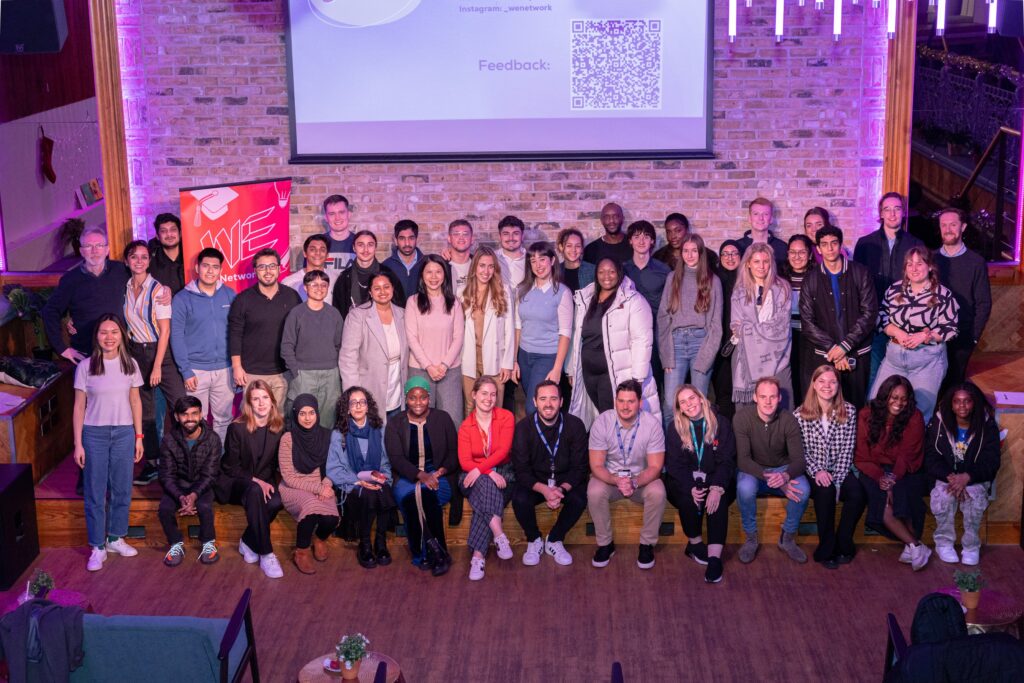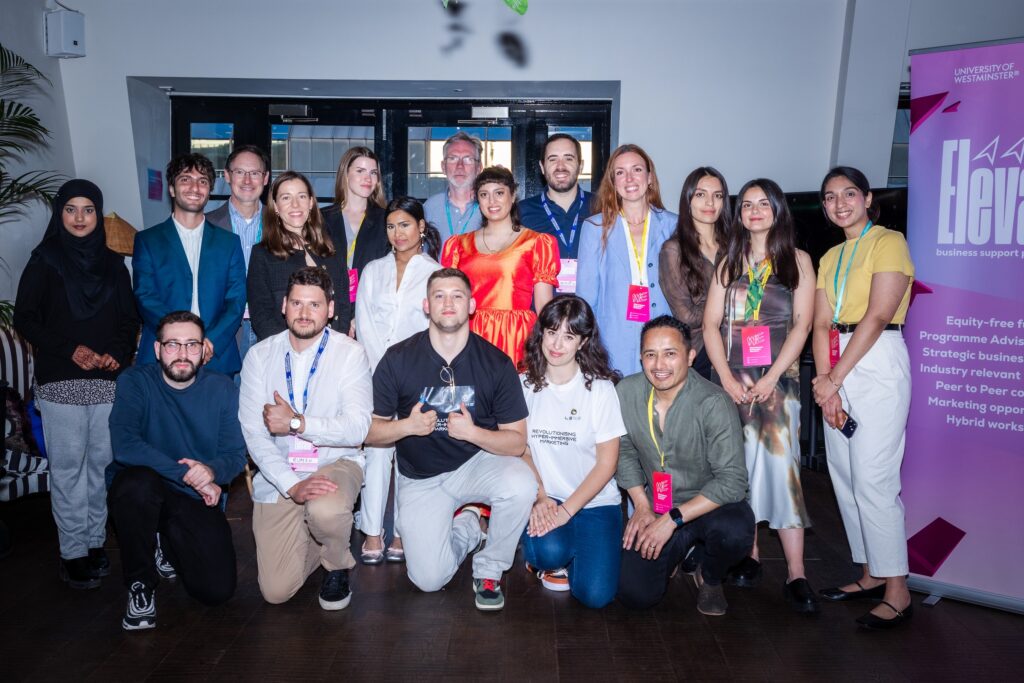Being shortlisted for this year’s THE award for Outstanding Entrepreneurial University is recognition of our attempt to empower all our students to join the growing proportion of the workforce describing themselves as entrepreneurs. There tend to be two types of “entrepreneurial” university. Some focus on generating income from intellectual property, created, for example through high growth “spin-out” start-ups. Others, like Westminster, focus on supporting students to start businesses (typically 1 or 2 person microbusinesses) while they are studying, or immediately after they graduate.

We have taken this approach in response to the needs of our students; around 58% of our home undergraduates are from under-represented communities, whose relative lack of cultural and material capital makes them disproportionately less able to access an extra-curricular enterprise programme. With such a diverse range of students and disciplines to support, many universities are forced to take a pragmatic “one size fits all” approach to entrepreneurship. The problem is most students – particularly those from under-represented communities – don’t see how this world relates to their experience or imagined career paths.
Responding to this problem, at Westminster, has required us to innovate in our approach to supporting student enterprise. We are faced with a requirement to operate at the scale required to include all our 20,000 students while simultaneously offering bespoke services which meet the needs of this diverse student population. Our solution has been to build a network of internal and external partners including students, alumni, colleagues and commercial and social enterprises.
The core mission of the Westminster Enterprise Network (WeNetwork) is to support our students to be entrepreneurial, by demystifying and contextualising entrepreneurship. WeNetwork has set itself the task of making entrepreneurship education inclusive, bespoke, embedded in curriculums and delivered at scale. A key first step was to grow our network by working in close partnership with our Alumni Relations Team. This enabled us to increase the proportion of entrepreneurial alumni, who share the same lived experiences as our students, delivering our workshops.
We are not alone in discovering that extra-curricular enterprise provision excludes students who have work or caring responsibilities. So, as well as making the idea of enterprise more inclusive, we have tried to remove the practical barriers preventing many of our students from gaining entrepreneurial experience. Our Fundraising and Development Team has worked with alumni to provide significant resources to support students to participate in our programmes and to provide alternatives to VC funding. For example, our incubator programme Elevate provides £10,000 in-programme funding to support the kind of self-employed and microbusinesses our students and graduates start.

The success of this approach in overcoming these barriers was evidenced in the last two years, when 80% of student participants in our programmes were drawn from under-represented communities. This impact helped WeNetwork win the award for Inclusive Enterprise Education, as well as two other categories, at the National Enterprise Educator Awards in 2023.
But overcoming barriers to extra-curricular participation can only include a proportion of our students. A truly entrepreneurial university must work out how to reach all its students. For us, this means entrepreneurship becoming part of the curriculum of every student. Delivering this requires further demystification and contextualisation of the concept of enterprise. “Enterprise” can mean fundamentally different things to students depending on whether they study STEM or SHAPE subjects and within and between those disciplines. Delivery by our alumni in these different fields helps demystify and contextualise the transfer of entrepreneurial skills. Partnership with our Careers Team has helped us broaden in-curriculum provision to present students with discipline-specific entrepreneurial career paths alongside more traditional career options in the field. Ultimately, enabling all our students to become entrepreneurial requires investment in delivery at scale. Westminster’s Senior Management Team has invested significantly in this vision of delivering enterprise education at scale, including a new purpose-designed building in central London.
I would argue that the test of whether a university is entrepreneurial, is neither its spin out income nor the number of graduate start-ups it creates. An entrepreneurial university is one where all its students feel empowered to take entrepreneurial action, whenever and wherever that becomes relevant to them.
The University of Westminster at Entrepreneurial Universities Conference 2024
The University of Westminster will be speaking at the Entrepreneurial Universities Conference 2024 on 14th November 2024.
